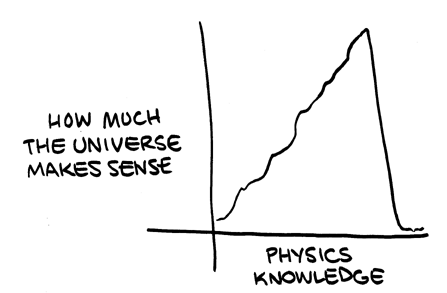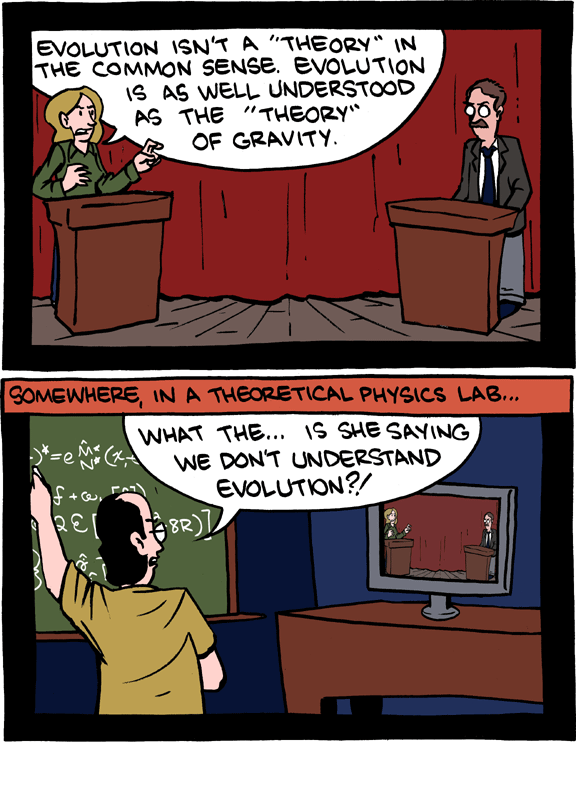this post was submitted on 12 Jun 2024
706 points (98.9% liked)
Science Memes
11189 readers
2992 users here now
Welcome to c/science_memes @ Mander.xyz!
A place for majestic STEMLORD peacocking, as well as memes about the realities of working in a lab.

Rules
- Don't throw mud. Behave like an intellectual and remember the human.
- Keep it rooted (on topic).
- No spam.
- Infographics welcome, get schooled.
This is a science community. We use the Dawkins definition of meme.
Research Committee
Other Mander Communities
Science and Research
Biology and Life Sciences
- !abiogenesis@mander.xyz
- !animal-behavior@mander.xyz
- !anthropology@mander.xyz
- !arachnology@mander.xyz
- !balconygardening@slrpnk.net
- !biodiversity@mander.xyz
- !biology@mander.xyz
- !biophysics@mander.xyz
- !botany@mander.xyz
- !ecology@mander.xyz
- !entomology@mander.xyz
- !fermentation@mander.xyz
- !herpetology@mander.xyz
- !houseplants@mander.xyz
- !medicine@mander.xyz
- !microscopy@mander.xyz
- !mycology@mander.xyz
- !nudibranchs@mander.xyz
- !nutrition@mander.xyz
- !palaeoecology@mander.xyz
- !palaeontology@mander.xyz
- !photosynthesis@mander.xyz
- !plantid@mander.xyz
- !plants@mander.xyz
- !reptiles and amphibians@mander.xyz
Physical Sciences
- !astronomy@mander.xyz
- !chemistry@mander.xyz
- !earthscience@mander.xyz
- !geography@mander.xyz
- !geospatial@mander.xyz
- !nuclear@mander.xyz
- !physics@mander.xyz
- !quantum-computing@mander.xyz
- !spectroscopy@mander.xyz
Humanities and Social Sciences
Practical and Applied Sciences
- !exercise-and sports-science@mander.xyz
- !gardening@mander.xyz
- !self sufficiency@mander.xyz
- !soilscience@slrpnk.net
- !terrariums@mander.xyz
- !timelapse@mander.xyz
Memes
Miscellaneous
founded 2 years ago
MODERATORS
you are viewing a single comment's thread
view the rest of the comments
view the rest of the comments


I like to think of it in this way: What we call dark matter isn't the cause/source, but the discrepancies we've seen in our observations/data. So anybody who says dark matter doesn't exist is plain wrong, the discrepancies are there plain as day. And it isn't a single thing, it's many discrepancies in a lot of data. Now the name is probably not as good, as it isn't clear it's actually matter and it isn't dark but simply doesn't interact with EM radiation. So we can't "see" it directly, only indirectly. The name is so poor, it leads to a lot of miscommunications. But the fact is, the data doesn't match up. So there has to be something there. And that's data going back almost 100 years.
Just like I said about gravity. There's dark matter, the real thing that exists and we can "see". And then there's the theory of dark matter, the how and why, the thing we haven't figured out yet.
No, we have observations that are consistent with the existence of matter that does interact gravitationally with regular matter, but does not appear to interact with light or electromagnetic forces. It's not like any matter we know about, other than the fact that it seems to have gravity.
General relativity works really well to explain matter in the solar system. Bigger than that, you have to use something else. The general consensus is that dark matter exists, but it's not strictly proven, as there are alternative theories.
Then, even bigger than that, dark matter alone isn't enough, you need dark energy to explain some observations, if you assume that cosmological constants are constant. If it turns out that they're not truly universally constant, we might need to modify some theories (including the proposed existence of dark matter and dark energy).